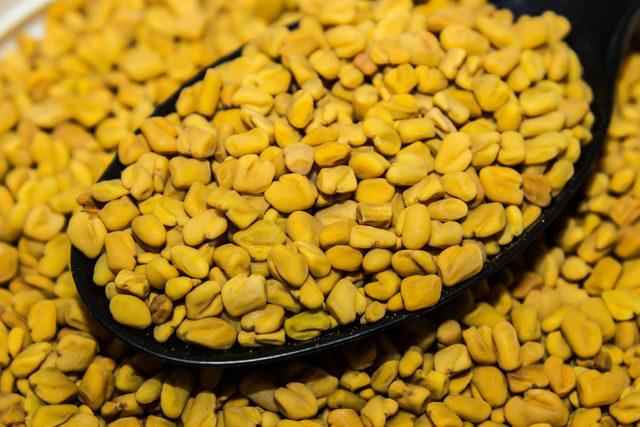Fenugreek is an herb in the same family as soy. People use its fresh and dried seeds, leaves, branches and roots as a spice, flavoring agent and supplement. While more research is needed, some research shows that fenugreek may have a variety of health benefits.
DISEASES WHICH ARE EFFECTIVE WITH FENENCE
- Diabetes
- Obesity
- high cholesterol
- high blood pressure
- Heart Function
- Bacterial, fungal and viral infections
- Inflammation
However, using or consuming compounds in fenugreek can cause uterine contractions during pregnancy and worsen hormone-sensitive types of cancer. Fenugreek can also cause mild gastrointestinal symptoms such as diarrhea and bloating. That’s why it’s important to get an expert’s opinion before using it.
Fenugreek is one of the oldest medicinal herbs with roots in both the traditional Indian and Chinese systems of medicine. Fenugreek extracts are ingredients found in many common products, including:
- soaps
- Makeup supplies
- teas
- Spice mixes such as garam masala
Nutritional Values of Fenugreek
Fenugreek contains many essential nutrients and these help make it a powerful antioxidant. Some of these foods are:
- choline
- Inositol
- biotin
- vitamin A
- B vitamins
- Vitamin D
- Soluble and insoluble fiber
- iron
One tablespoon (11.1 grams) of whole fenugreek seeds is 35 calories and contains several nutrients.
- Fiber: 3 grams
- Protein: 3 grams
- Carbs: 6 grams
- Fat: 1 gram
- Iron: 20% of the daily value (DV)
- Manganese: 7% of DV
- Magnesium: 5% of the DV
HELP LOSE WEIGHT
Both fenugreek seeds and leaves can aid weight loss. These leaves are high in fiber and other essential nutrients. Galactomannan, a water-soluble fiber found in fenugreek seeds, reduces your appetite by increasing the feeling of satiety, which aids in weight management. It also boosts the body’s metabolism, which increases fat burning as well as overall health.

HELPS PROPER DIGESTION
Fenugreek is rich in fiber and antioxidants. It helps to remove harmful toxins from the body and thus aids in digestion. In some cases, fenugreek tea is used to relieve indigestion and stomach pain. You can even drink fenugreek juice early in the morning to deal with constipation.
PREVENT COLON CANCER
Fenugreek’s high fiber content binds to toxins in food and flushes them out. This helps protect the mucous membrane of the colon from cancer.
IMPROVE BLOOD SUGAR LEVELS
Fenugreek seeds and leaves are very beneficial for people suffering from diabetes. It is high in soluble fiber, which helps lower blood sugar by slowing the digestion and absorption of carbohydrates. This suggests that it may be effective in the treatment of people with diabetes.

SUPPORTS A BETTER SKIN CONSTRUCTION
Fenugreek is also good for your skin health. The presence of antioxidants and many essential vitamins can help you fight skin problems. You can either add it to your diet or make a paste and apply it to your skin. It also provides a very useful content for your hair.
HELPS REDUCE MENSTRUAL DISEASE
Fenugreek contains compounds such as diosgenin and isoflavones, which have estrogen-like properties that help reduce symptoms such as discomfort and menstrual cramps associated with PMS. These compounds also relieve menopausal symptoms such as hot flashes and mood swings.
IMPROVE MILK PRODUCTION AND FLOW
Fenugreek can help stimulate breast milk production and facilitate flow. Traditional Asian medicine practitioners have long recommended fenugreek for this purpose. In a 2014 study, 25 women who had recently given birth drank three cups of fenugreek tea daily for 2 weeks and saw an increase in milk volume in the first weeks.
RAISES TESTOSTERONE AND INCREASE SPERM COUNT
Fenugreek can help increase low testosterone and sperm levels. In a 2017 study, 50 male volunteers took fenugreek seed extract for 12 weeks. Sperm count increased in about 85 percent of the participants. The results also show that the extract consistently improves mental alertness, mood and libido.
REDUCES INFLAMMATION
The significant levels of antioxidants in fenugreek give it great potential as an anti-inflammatory agent. Results of a 2012 study in mice suggest that the high content of antioxidant flavonoids in fenugreek seeds may reduce inflammation.
REDUCES THE RISK OF HEART AND BLOOD CONDITIONS
Regular consumption of fenugreek seeds helps reduce total cholesterol, LDL (bad cholesterol) and triglyceride levels in the blood while increasing beneficial HDL cholesterol levels. This is because these seeds contain steroidal saponins, which slow down the absorption of cholesterol from the intestines. Fenugreek can help regulate cholesterol levels and improve blood pressure, which may reduce the risk of developing heart conditions and improve heart health. This may be because fenugreek seeds contain roughly 48 percent dietary fiber. Dietary fiber is very difficult to digest and forms a sticky gel in the intestines that makes it difficult for sugar and fats to be digested.
A NATURAL PAIN RELIEF
Fenugreek has long been used in traditional medicine systems to relieve pain. Researchers think that compounds in the plant called alkaloids help block sensory receptors that allow the brain to perceive pain. In a 2014 study, 51 women with painful periods took fenugreek seed powder capsules three times daily for the first 3 days of their periods for 2 consecutive months. They experienced shorter periods of pain and fewer symptoms over the months.
